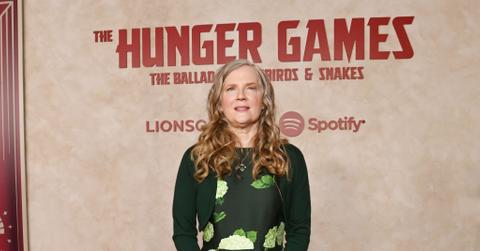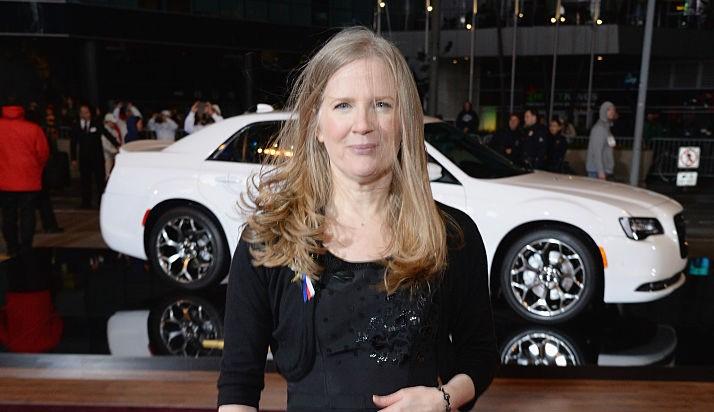Suzanne Collins Is Mum About Her Politics, But Her Books Speak For Themselves
Suzanne Collins is surprisingly mum about her political views, but her novels send some big messages.
Published June 10 2024, 6:37 p.m. ET

Famed author of the Hunger Games trilogy Suzanne Collins has been clear that her books are meant to send a message. When she initially walked away from the popular franchise after the last movie, Mockingjay Part 2, released in 2015, she did so with the message that she wouldn't return to Panem unless there was a new story to tell.
Since then, we've received the novel (and film adaptation) A Ballad of Songbirds and Snakes, following President Snow's experience mentoring a tribute from District 12 in one of the earliest iterations of the annual games.

Though Suzanne had originally said she wouldn't share the story of District 12 winner Haymitch Abernathy, it seems she's changed her mind. Sunrise on the Reaping is the fifth book set in the Hunger Games universe and will release on March 18, 2025. The film has already been slated for an adaptation.
Each of these novels has a deeper political message to them, as Suzanne is known for relating her work back to some of the darker current events. But what are the author's political views?
What are Suzanne Collins's politics? Her books have been used in activism.
Though many of Suzanne's novels have some intense political and social commentary embedded in them, the author has never spoken publicly about which side of the party line she votes along. Instead, it seems the writer wants to let the messages her readers take away from her work speak for her.
Despite her public silence, her novels have been used in some activist protests, with references to Mockingjay made during BLM protests and other organized activism.
Considering the pro-revolution messaging many of her novels contain, though, it's likely safe to assume she's not a particularly conservative or right-wing person (though she has not personally confirmed).
The 'Hunger Games' trilogy is about the "just-war theory."
Though we may not yet know what political message Suzanne plans to send readers with this upcoming novel, it's not likely to stray from the just-war theory she's implemented for the previous stories set in the world of Panem. Though the author has remained mum publicly about her personal political views, she shared in an interview with The New York Times in 2018 how she wanted to write a "just-war" story for young adults.
"Just-war theory has evolved over thousands of years in an attempt to define what circumstances give you the moral right to wage war and what is acceptable behavior within that war and its aftermath. The why and the how," she told the outlet. "It helps differentiate between what’s considered a necessary and an unnecessary war. In The Hunger Games trilogy, the districts rebel against their own government because of its corruption. The citizens of the districts have no basic human rights, are treated as slave labor, and are subjected to the Hunger Games annually. I believe the majority of today’s audience would define that as grounds for revolution."
Despite the immediate buzz the announcement of Sunset on the Reaper immediately garnered, she has not publicly stated just what angle the upcoming novel will take, nor any of the ulterior messages she hopes to convey through Haymitch's story.